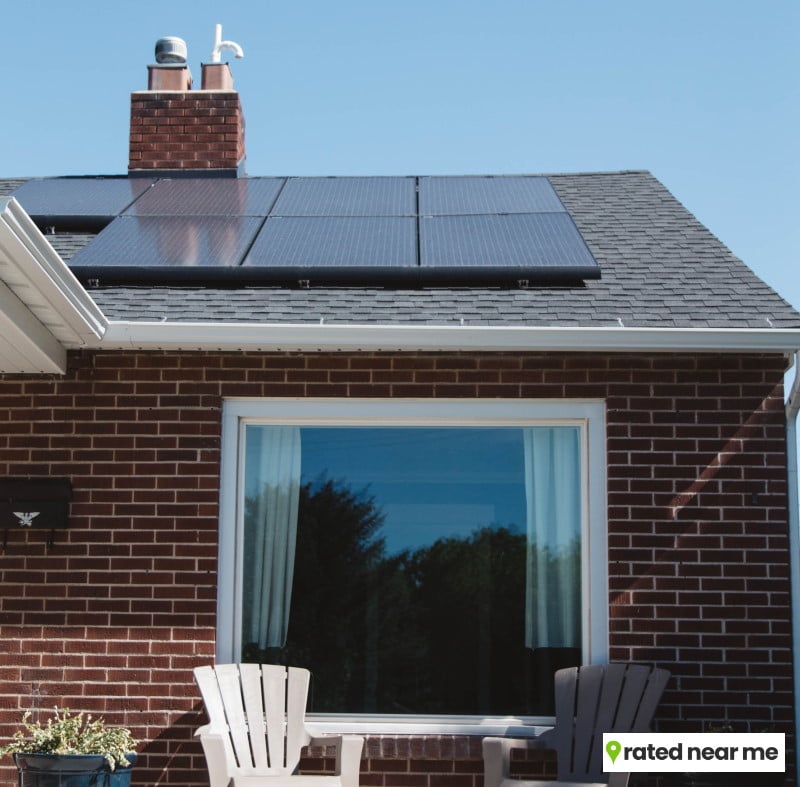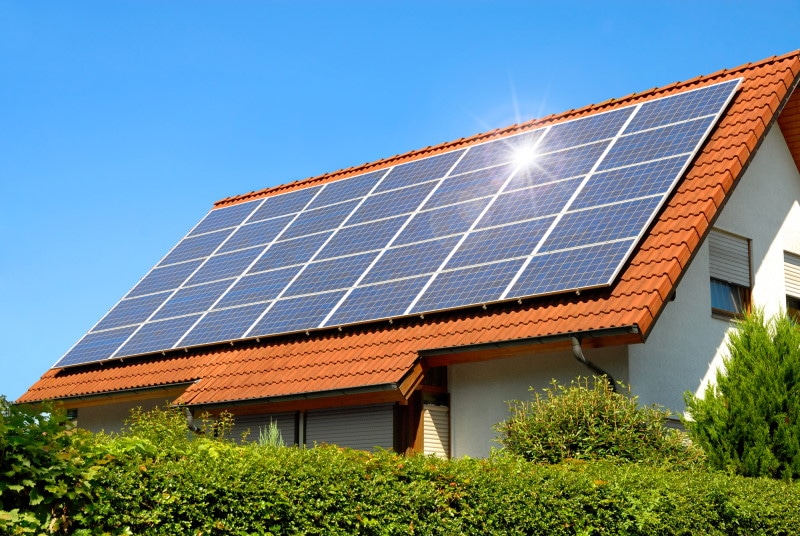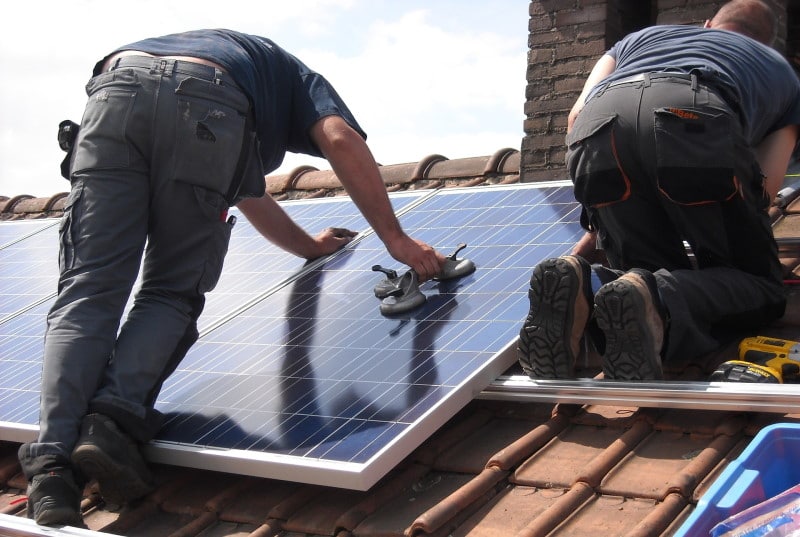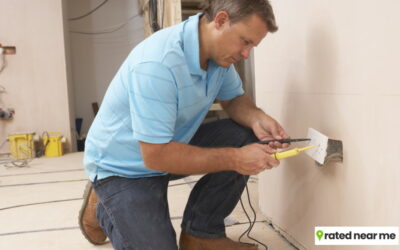Are residential solar panel costs worth it?
With energy prices on the rise, more and more UK homeowners are looking for ways to reduce their electricity bills. Are solar panels the answer they’re searching for?
Our complete guide explores solar panel costs, solar panel effectiveness and potential savings.
On the face of it, solar panels are an incredibly attractive investment for your home. Solar panels can power your home using green renewable energy, reduce your electricity bills and even enable you to sell electricity back to the national grid.
What’s more, on April 1st 2022 UK households face a huge 54% rise in their energy bills when the energy price cap increases. The appeal of reducing those monthly energy costs has never been greater!
However, the upfront cost of solar panel installation is significant, and there are a number of important factors to consider when calculating whether a home solar panel system is worth it for you.
These include the price of energy (your electricity bills), the export price (the price you’ll get for the energy you sell back to the grid), solar panel prices, your living habits, and the location of your home.
Our guide to UK solar panel installation will explore all these key considerations and more, to help you make the right decision when it comes to buying a solar panel system.

How do solar panels work?
Solar PV panels generate electricity from sunlight – and so are considered a source of renewable energy.
They don’t require direct sunlight, so they will not completely stop working on cloudy days. However, they will work more effectively and generate more electricity on clear, sunny days.
There are numerous different types of solar panels, but those used for the purpose of generating electricity from sunlight are called Photovoltaic Panels (or PV Solar Panels).
The panels themselves are made up of multiple smaller cells which are commonly manufactured from conductive silicon. When sunlight shines onto these cells, electricity is created.
How much electricity does a solar panel produce?
Solar panels are almost always arranged in sets of panels that make up a “solar system”. Each panel can generate between 200-350W of energy in strong sunlight.
The total output of the solar system is calculated by multiplying the number of panels by the output of each individual panel.
For example: a system with 12 x 250 watt solar panels has an output of 3kW. The annual output of this system would be approximately 2,550 kWh.
How much does it cost to install solar panels in the UK?
According to the Energy Saving Trust, the average solar power system used by UK homes is 3.5kWp in size. The average cost of solar panels is around £4,800.
What affects the cost of solar panels?
The final cost of a solar power system is dependent on the following factors:
1. Size of the system – This is simply the number of panels that you are choosing to install. Unsurprisingly, the more panels you choose to have, the higher the price you will pay.
2. Type of panels used – As we have noted above, different panels output different amounts of energy. You’ll pay more for panels with a higher output – otherwise known as a higher Efficiency Rate.
3. Solar panel installation cost – Installation costs can vary depending on the complexity of installing the solar panels onto your roof. This can be affected by the roof structure and angle – as access requirements. The resulting labour costs can also vary depending on which region of the UK you live in. Labour costs are typically higher in London and South East England.
Can I get free solar panels in the UK?
At the time of writing there are no government grants for solar PV systems in the UK. This means that it’s not possible to get free solar panels, or a contribution to their cost, in the form of solar panel grants.
Find The Cheapest & Best Solar Panel Companies Near You
Get free no obligation quotes for solar panel installation today
How long do solar panels take to pay for themselves in the UK?
Once they have been installed, there are two ways in which solar PV panels can help homeowners save money:
1. Reduce Energy Bills – By using solar panels to generate electricity for their home, homeowners will use less electricity from the energy supplier and their energy bills will be lower.
2. Smart Export Guarantee (selling electricity) – Homeowners can also sell any excess electricity generated by their solar panels back to the national grid. The Smart Export Guarantee (SEG) was introduced in January 2020.
It ensures that residents in England, Scotland and Wales are always able to sell surplus electricity.
Under the scheme, larger energy suppliers are required to offer SEG tariffs. There are no set or minimum tariffs, which means that the energy suppliers get to determine how much they will pay for any electricity they buy.

Solar Panel Effectiveness
The amount of electricity generated by a solar power system is first and foremost dependent on the size of the system and Efficiency Rate of each panel used.
However there are two other key factors which determine how much money you can expect to save after having solar panels installed:
1. The UK region that you live in – Solar panels do not require blazing sunshine to generate electricity, however they do require daylight hours. Regions in the North of the UK experience fewer hours of daylight than regions in Southern England.
As a result, solar panels installed in these areas will generate less electricity, and save homeowners less money, than those installed in Southern Regions.
2. When you are typically at home – Solar panels operate at their peak during the daytime, but they don’t store the electricity they generate by themselves.
This means that homeowners will use more solar electricity, and save more money on their bills, if they are at home during the day and using the electricity that is being generated.
Not everyone can be at home during the day, but those who are away from home (for example at work) can mitigate this by setting timers on large appliances such as washing machines or dishwashers.
Solar Panel Expected Savings
Taking the factors above into consideration, the Smart Energy Trust have calculated likely savings and payback times for the installation of a solar panel system in UK homes.
The following figures assume that homeowners are taking advantage of the Smart Export Guarantee to sell surplus electricity, in addition to using their own solar electricity.
| London, England | Expected Annual Savings | Payback Years |
|---|---|---|
| Home All Day | £385 | 16 Years |
| Out Until 4pm | £265 | 19 Years |
| Out Until 6pm | £245 | 23 Years |
| Manchester, England | Expected Annual Savings | Payback Years |
|---|---|---|
| Home All Day | £355 | 18 Years |
| Out Until 4pm | £240 | No Payback |
| Out Until 6pm | £220 | No Payback |
| Stirling, Scotland | Expected Annual Savings | Payback Years |
|---|---|---|
| Home All Day | £340 | 19 Years |
| Out Until 4pm | £225 | No Payback |
| Out Until 6pm | £205 | No Payback |
These figures tell us that it’s possible for solar panels to pay for themselves within 16 years. However, in other scenarios, solar panels do not pay for themselves within a practical length of time.
The figures also demonstrate the impact that not being at home during the day, or living in a region with fewer daylight hours, can have on any potential savings.
It should be noted that the Energy Saving Trust have calculated these savings using energy prices which are accurate as of November 2021. If and when UK homeowners do see the projected 54% rise in their energy bills, savings will be higher and payback times shorter.
Money Saving Expert have crunched the numbers and estimate that payback from solar energy could be achieved in as little as 9 years once the higher energy prices come into play.
Solar Batteries
We’ve noted already that solar panels have the greatest potential to save people money when homeowners are at home during the day, and using the solar energy that is being generated.
However, while homeworking has become more common in light of the COVID19 pandemic, for many people it’s simply not possible to be at home during the day. In this sense, solar panels do not align neatly with many people’s routines.
A Solar Battery can mitigate this by storing the electricity that is generated during the day so that it can be used in the evenings. The battery storage can then be used at a time when most people are at home and using electricity for things like cooking, watching television and making cups of tea.
By allowing homeowners to use a greater proportion of the electricity generated by their solar panels, a solar battery can deliver greater savings on energy bills.
However, like solar panels, the upfront cost of solar battery storage is significant. To understand whether a solar battery is the right choice for you, we recommend speaking with a local expert.
If you are wondering how much does a solar battery cost? – a solar battery in the UK can cost anything between £1,200- £6,000 including installation.
Solar Hot Water – A Solar Alternative
An alternative to using solar panels to generate electricity, is using solar panels to heat the water that you use in your home. Since hot water can be stored more cheaply and easily than electricity, homeowners will typically be able to use all the hot water that is generated – at a time that suits them.
The solar panels used for Solar heating systems (or Solar Thermal Systems) contain liquid, which is heated by the sun and then pumped through to a hot water cylinder. The water within the hot water cylinder is warmed by the heated liquid and stored for later use.
Solar hot water systems are estimated to provide up to 90% of your hot water in summer and 25% of your hot water in winter. This translates to savings of between £60-100 per year depending on how you currently heat your water.
Like solar panels and solar batteries, the cost of installing a solar thermal system in the UK is relatively high.
You can expect to pay between £3,000-£5,000 meaning that many homeowners will need to wait a number of years before the system will have paid for itself.
Are solar panels worth it for me?
We have explored in detail what you should consider when calculating the likely savings on your energy bills that solar panels might generate.
However there are also a number of more practical considerations to take into account before buying solar panels:
1. Is your home / roof suitable? – Solar panels need a south-facing roof, or one that is predominately south-facing. Ideally your roof shouldn’t be shaded by other buildings or trees at any time during daylight hours.
Before installing solar panels on a roof, you should also make sure that it is structurally sound. This is to ensure that the installation is smooth and also to guard against needing to repair your roof shortly after the panels have been installed.
2. Is your UK region optimal for solar panels? – We have seen how the location of your home significantly influences the amount of electricity solar panels can produce.
Make sure you are taking your region into account when calculating potential savings. You can use the Energy Saving Trust’s Solar Power Cost Calculator or speak to a local expert.
3. Are you looking to sell your home? – In many circumstances, solar panels will eventually pay for themselves. However, it is likely to take at least a decade for them to do so.
If you’re looking to move home in the next 5-10 years, investing in solar panels starts to look questionable. What’s more, solar panels are not thought to add any significant value to your home when it comes to selling up.
4. Is saving money your main objective? – Solar panels are a significant investment from which many people would want to receive a financial return (in the form of significantly lower energy bills).
However, if you are more motivated by the idea of powering your home with greener, renewable energy, there is less pressure on the “solar energy maths”.
That said, before you buy solar panels, we’d still recommend taking steps to estimate the potential of solar panels on your home and in your region of the UK.
If, for example, you live in the North of the UK without a south facing roof – your green intentions may be better off realised in another way.
Choosing Solar Panels And A Solar Panel Installer

Adding solar panels to your home is both a significant financial investment and a significant physical addition to your roof. Here are some key considerations to help you get the best solar panels, pay the right price and choose a reputable solar installation business:
1. Hire a Certified Installer and Buy Certified Solar Panel Systems – In order to sell the surplus electricity (feed in tariff) produced by solar panels under the Smart Export Guarantee, both the solar panels themselves and the installer need to be certified under Microgeneration Certification Scheme (MCS) or equivalent.
Your energy provider may ask to see a certificate before agreeing to place you on a SEG tariff. For extra peace of mind, you can also ask the installation company if they are a member of the Renewable Energy Consumer Code.
2. Hire a Highly Rated Solar Panel Installer – The upfront costs of installing solar panels are significant, so it’s important to ensure that you’re handing over your money to a reputable installer.
Established businesses are likely to have customer testimonials on their website and reviews on Google. You can also use services such as Rated Near Me to find highly rated solar panel installers in your area.
3. Hire Local – By hiring a local solar panel installation company, you’ll benefit both from their local knowledge and local connections.
For example, they may have already installed solar panels on homes just like yours in the neighbourhood. They may also have existing working relationships with local scaffolders or skip hire companies.
4. Get Multiple Quotes – Make sure that you’re getting the best price for your work by obtaining quotes from multiple businesses. You can use tools such as Rated Near Me to get competitive quotes in minutes.
Get Free Quotes From A Solar Panel UK Installer Today
We have seen throughout this guide that there are a number of factors to consider when deciding whether to install solar panels on your home.
These include the location of your home, the size of the solar system you can or want to install, and your day-to-day living habits. Nobody is better placed to give you further advice and guidance than a local expert.
Thanks to Rated Near Me it’s never been easier to contact and request quotes from knowledgeable solar panel installers in your area.
It takes just a few minutes to get competitive no obligation prices to compare from highly rated local installers.
Find The Best Solar Panel Prices Near You
Get free no obligation estimates for solar panel installation



